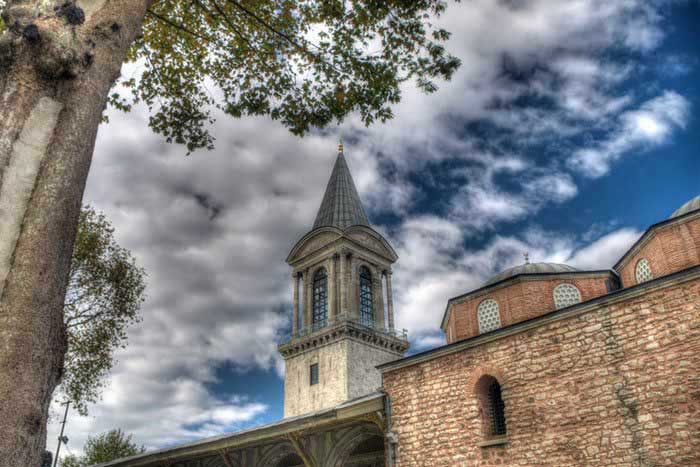Eutharic was named consul for the year 519, under the proud eye of Theoderic and notionally alongside the new emperor, Justin, as fellow consul, though of course they never laid eyes on each other. More dramatically, Justin proclaimed Eutharic his “son in arms” by an honorary adoption conferring recognition and acceptance of the highest kind. The aged Anastasius, who had been emperor since 491, had always been suspicious of Theoderic, but left him alone for the last decade, preoccupied in part by worries closer to home. Justin, more a barbarian than Theoderic ever was, came down out of the Balkans to make his way in the imperial army, and then followed talent to the top—we’ll watch him make the final leap. Theoderic clearly thought that he could now proclaim his own heritage more grandly, without imperiling the position he had succeeded in obtaining, and using this renewed statement of his Gothic identity to improve his standing both at home and in Visigothic Iberia. Whether this was entirely Theoderic’s idea, or whether Eutharic—known also to have been more zealous in promoting the Arian religion—was behind this invention of family pride, we cannot tell.
So the realm celebrated Eutharic’s consulship in 519 with all the Roman pomp of which it was capable. In that year, the contemporary account tells us, every performance of the games and shows had unimagined marvels to offer. The official representative of the eastern emperor was astonished (we are told) to see the extraordinary wealth handed out to soldier and civilian, that is, to both Goth and Roman. The wild beast shows in the Colosseum were like nothing anyone then alive had ever seen, with rare animals from Africa, their acquisition no doubt the result of good diplomacy with the Vandals. Eutharic could scarcely tear himself away from the Romans’ love and admiration to return to Ravenna and the court of his father-in-law, where the chariot races began once again, with such immense largess shown to Goths and Romans alike that it surpassed even what he had just seen at Rome.
The spectacle hit every note of Roman splendor, but the message was deliberately Gothic and dynastic. At the same time, Theoderic’s house historian wrote books just to capture this splendor. This was Flavius Magnus Aurelius Cassiodorus Senator, the son of the man who secured Sicily and Calabria for Theoderic. He wrote a chronicle of all of human history, from Adam forward, through all the consuls of Rome, from the first in 509 BCE down to the exaltation of Eutharic himself, and then turned to a formal history of the Gothic people in twelve books, emphasizing the obvious, which was truer than the author or his patron knew: that the Goths had been forever part of the Roman world. His chronicle took every opportunity to mention the turning points in the history of Gothic-Roman relations and, where necessary, smooth over awkwardness. The larger work was marked throughout by the legend of Theoderic’s own family, the Amals, outlining seventeen generations of kings that culminated in the year he wrote: 519.6 Cassiodorus delivered a formal Latin oration in honor of Eutharic as wellbulgaria vacation.
Romans, history of Goths
With three such magnificent books—chronicle of Romans, history of Goths, and prose poem praise of the ruler—the Roman enthronement of Eutharic, consul and heir, was complete. His ancestry was validated and approved, and at the same time firmly grafted onto the Roman family tree. The audiences for the games may have been seduced by the generosity that they received, but they also went away with a very clear message. The Roman empire was alive, well, and doing business in Italy, on pompous display in both Rome and Ravenna, with a regime that had deep roots in the history of the Mediterranean world, and with a long lineage. This consulship and the great visit of the year 500 were the two grandest spectacles at Rome in at least a century, and not until papal Rome of the Renaissance would there be anything to match them.
When we hear such a thunderous assertion, we should listen for corresponding small voices that might say something else. What were they saying in 519? They suggested that this regime was illegitimate, that there were other families of long standing, that true religion might provide a reason for failing to assent to the regime’s perpetuity. The people who said this were the ones who saw a comet in the sky for two weeks that summer and interpreted it as a sign of dynastic change. Few if any voices were raised against the regime’s putative barbarianism, for ambitions of the kind that were in the air needed few excuses and plenty were at hand. The irrelevance of modern ideas about Goth barbarianism is proved when we see that a mighty empire was overthrown without anyone’s needing to use barbarians as an excuse or pretext. Theoderic’s great achievement was the coexistence of Romans with Romans and Romans of many different kinds, and even a suggestion of dissolving that unity would have baleful consequences Theoderic on horseback.








